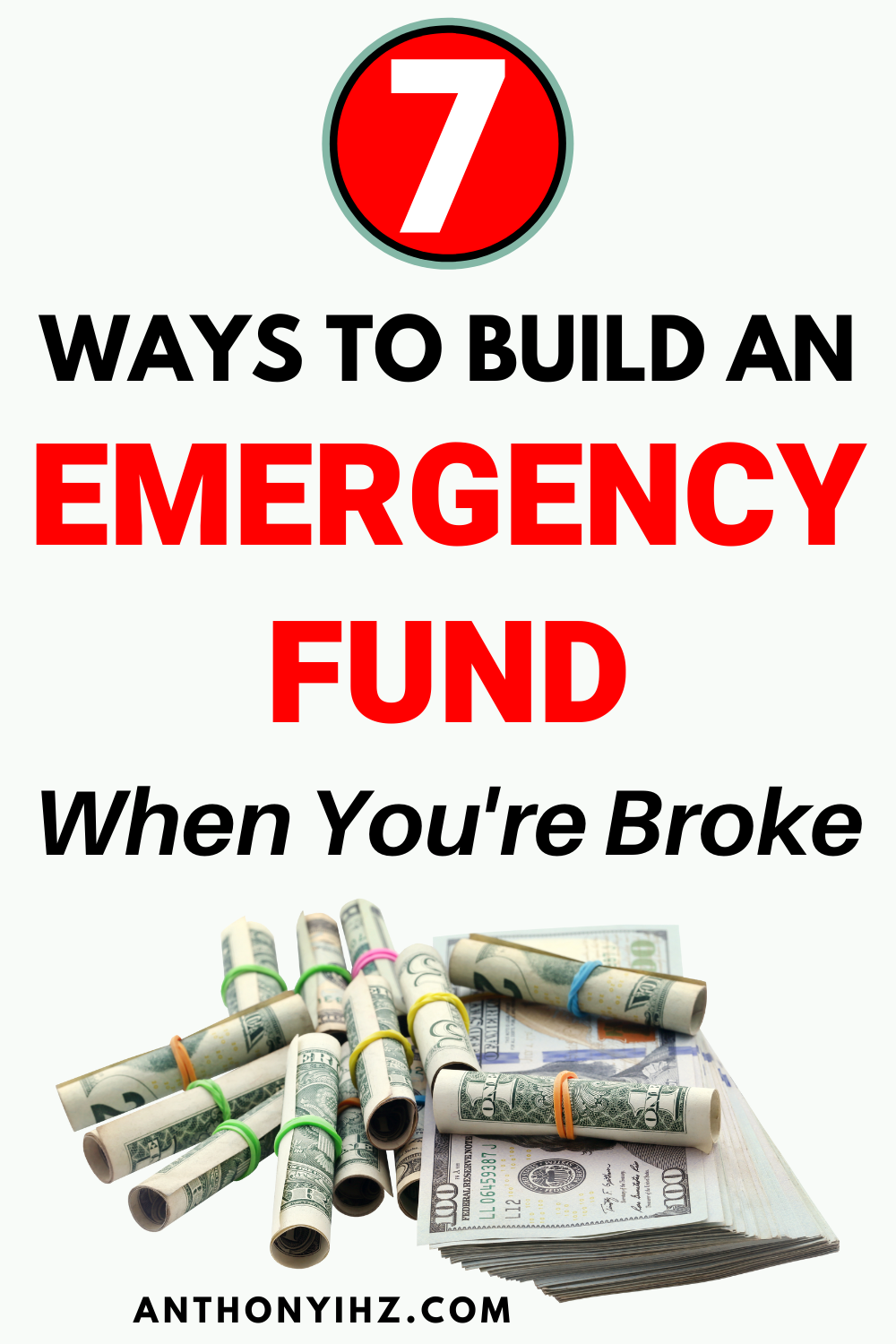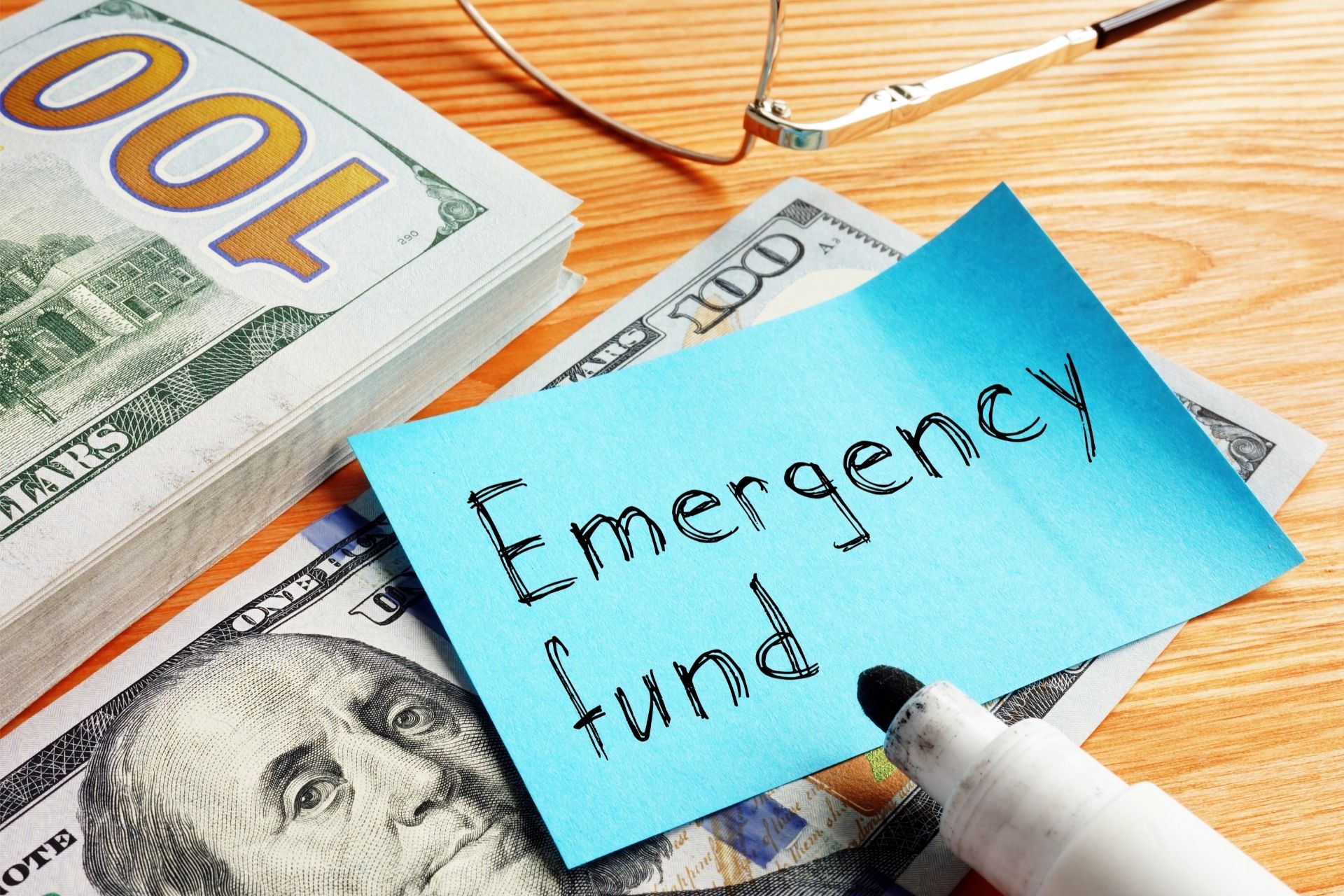
Emergencies and unexpected events can occur at any time, causing you to spend some money that you never planned to spend. This can be pretty devastating, especially when you don’t know how to build an emergency fund to cover those expenses that come when you least expect.
Sometime in 2020, I mistakenly left my smartphone in the water while doing the laundry. By the time I realized it was buried deep in a bucket of water, so much damage had been done to the device.
I took my smartphone to a phone repair expert for a fix. But sadly, the phone repairer advised that I purchase a brand new smartphone because the panel of my waterlogged phone had been seriously damaged.
I had to spend about $500 on a brand new smartphone, and this was an emergency expense I never budgeted money for. Ever since, I’ve learned how to build an emergency fund so that I can be well prepared for any unforeseen expenses.
If you aren’t used to making plans for an emergency fund, it’s high time you start building one. You never know when an emergency will compel you to spend a significant amount of money you had budgeted for something else.
Thankfully, this post would be very instrumental to you right now, as it teaches you exactly how to build an emergency fund in 7 easy steps. Having learned easy ways to build emergency funds, you won’t be caught off guard by impromptu expenses.
What Is An Emergency Fund?
You must have heard about emergency funds, but have you painstakingly pondered what an emergency fund is and how important it is to your financial life?
An emergency fund is a sum of money you save up to help you pull through during an emergency such as an unexpected illness, vehicle repair, or even a job loss. These are the typical emergency fund examples.
With an emergency fund in place, situations like these won’t be frustrating because you have what it takes to handle them financially.
Without an emergency fund, you are likely to run into debts because you’d have no choice but to borrow some money when an emergency expense arises.
How Much Money Should Be In An Emergency Fund?
No known rule reveals the ideal amount of money that should be in an emergency fund. Nevertheless, you must put your imagination to good use by forecasting some of the emergency expenses that could arise.
For instance, you know that you could have car troubles any day, and you should be able to determine the average amount of money that would be spent to fix your car.
On the other hand, you could examine your previous medical bills to determine how much you are likely to spend if you unexpectedly fall ill. By doing all of this, you would clearly understand how much money should be in an emergency fund.
But for the record, some people save tens of thousands of dollars as emergency funds. These are people who earn a lot of money. So if you know you aren’t a high-income earner, don’t go out of your way to save money for an emergency fund. You should save money for an emergency fund based on your financial capacity.
Benefits Of Building An Emergency Fund
Having wondered why might a person need an emergency fund? The truth is, there are a few crucial benefits of building an emergency fund, one of which is avoiding debts. Having an emergency fund would lower the risk of being in debt.
Imagine if you have to urgently fix your car but don’t have enough money to finance it; you would have to borrow money to escape that situation. But in a situation where you have an emergency fund ready to cover unforeseen expenses, you won’t run into debts unnecessarily.
In fact, being able to avoid debts is one of the reasons why a person might need an emergency fund.
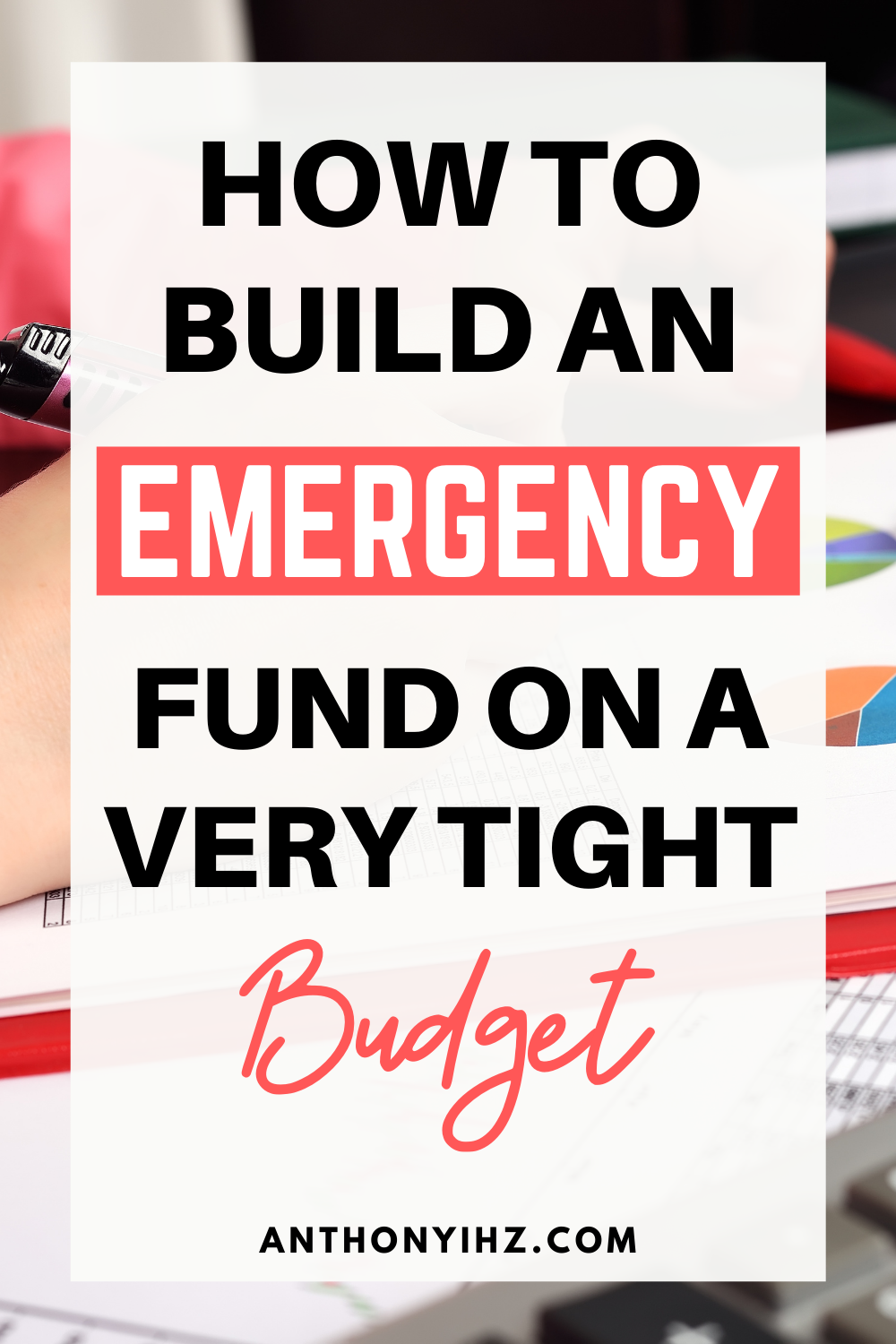
How To Build An Emergency Fund In 7 Steps
As someone who doesn’t know how to start an emergency fund, you need a simple, practical guide that will hold you by the hand and walk you through the entire process. Amazingly, you are about to uncover the 7 steps on how to build an emergency fund, even as a beginner.
Without any further ado, let’s dive into how to build an emergency fund fast:
1. Create A Separate Emergency Savings Account
When embarking on any goal that requires you to save money, you must open a savings account. Your savings account is one of the main things facilitating your spending habits, ensuring you don’t overspend your income.
Check around for a reputable financial institution to help you create a savings account with a reasonable interest rate for a low fee. Before doing this, ensure you do your due diligence by researching the charges you may incur while opening a savings account with the financial institution you choose.
Another thing to consider is how much interest you earn from the account. However, this is not the main reason for opening the account, so don’t be carried away.
According to financial experts, having a savings account would enable you to instinctively know the money you are allowed to spend and the money you shouldn’t spend at all.
If you combine the emergency fund with the money you have in your regular account, you won’t be able to tell the difference between them, and this subjects you to a spending spree. But if your emergency fund is separately kept in a savings account, you won’t be tempted to tamper with it because the money is not easily accessible.
Another thing you should do when opening a savings account is to create the account with a different bank from the one that has your regular bank account.
Lastly, with a savings account available, you don’t have to be bothered about where to put your emergency fund.
2. Automate Deposits Into Your Savings Account
Once you have successfully opened a savings account for your emergency funds, the next important step is to automate deposits so that a certain amount of money goes directly into the savings account without you lifting a finger.
You can easily automate your deposits through online banking. But if you aren’t used to online banking, visit your financial institution for assistance.
While trying to automate your deposits, it’s advised to treat your emergency funds just like your regular bills because that’s what they would end up being eventually – emergency bills. This means that your fund contributions should be incorporated into the monthly budget.
While outlining the things to spend money on for the month, include your emergency funds as well. Anyone who knows how to build an emergency fund knows that it’s important to prioritize the amount of money transferred to a savings account for emergence purposes.
Once your deposits are automated, you won’t have to remind yourself to save money for your fund constantly. More importantly, you won’t be tempted to spend the money on a different purpose.
3. Break Down Your Savings Goal Into Smaller Steps

To build an emergency fund successfully, you must understand how to break down your savings into smaller steps. Typically, it takes a long time to build substantial savings, especially when you don’t earn a hefty paycheck. This is why it’s important to start small, rather than trying to save up a lot of money within the shortest time possible.
Based on your in-flow of income, set a low initial target – it could be $1000 a year or even 10 thousand dollars a year. This means that by the time you save about $80 every month, and then it amounts to $1000 by the end of the year, you would have achieved your first milestone. By then, you can decide to embark on another emergency fund.
The main idea of breaking down your savings into smaller goals is to ensure you don’t get discouraged because once you save a little bit of money, you can still have enough to cover other important expenses.
4. Funnel Extra Money Into Your Savings Account
The moment your savings game is in motion, you can relax and observe your progress, watching your emergency fund grow. But if you want to speed up the process a little bit, you might want to add some extra money into your savings account.
The best way to do this is by taking advantage of any extra money you come across during the month. For instance, your monthly income can’t be fixed if you are a business owner or a freelancer.
There are some months you’d earn more, while there are some months you won’t earn so much. Nevertheless, once you realize that you have some extra income, try transferring some of it into your savings account for your emergency fund. If you have been wondering how to build an emergency fund fast, you should try doing this.
On the other hand, as a salary earner, there are times you might earn bonuses or some monetary benefits at work. Instead of using this money on something irrelevant, send it to your savings account. That’s how to build an emergency fund.
5. Boost Your Income And Cut Expenses

Looking for feasible ways to boost your income and cut down on expenses will also help you save up for your emergency fund faster. Typically, one of the most common advice given to people who want to realize more money is to cut down on unnecessary expenses.
You won’t realize how much money you have been wasting until you sit down and examine all your purchases. You’d find that your income is being consumed by so many irrelevant expenses that add little or no value to your life.
So if you want to boost your income, you don’t always have to find a side hustle or work multiple jobs. Instead, it would be best to cut down on your expenses drastically.
Here are some helpful tips to cut down expenses:
- Stop eating out: Instead of constantly eating out with your friends, learn to prepare your meals at home.
- Get a shopping list: Always shop with a shopping list rather than walking into a store and buying things spontaneously.
- Don’t shop with friends: They might influence your spending habit by compelling you to spend more money than you have.
- Don’t shop with your credit card: Use only cash to restrict your spending.
- Don’t buy debts except you are in dire need of them: When you have debts to pay, it’s challenging to save money for anything, let alone an emergency fund.
Another interesting method for boosting your income is cleaning out your closet, garage, basement, and storage lockers. By doing this, you can find old items that you can refurbish and sell. You can sell your items on eBay or Craiglist.
6. Review Your Budget
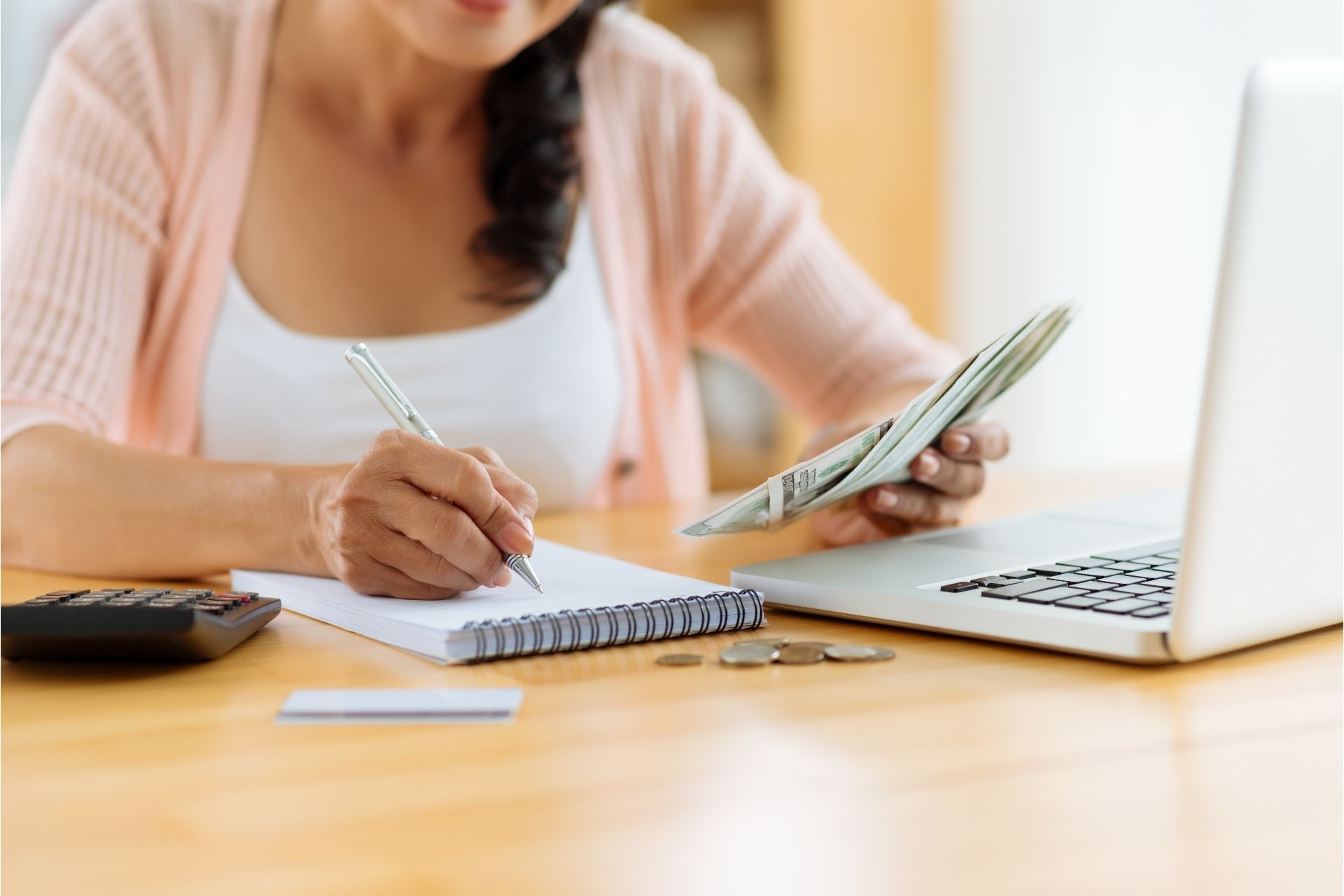
It’s not enough to know how to start an emergency fund. You also need to constantly review your budget as you save money towards the goal.
When making any financial plan, having a budget is crucial. Your budget must be regularly reviewed to determine if your saving and spending habits are beyond your financial status or not.
As you review your budget, take your time to examine your spending and see if you are spending more than you should. Once you notice that you are spending too much, you must do something about it. For instance, if you unnecessarily spend $1000 on groceries every month, try to reduce the expense by at least 15%.
If you don’t control your spending habit, you will get stuck along the way trying to save for your emergency fund.
7. Use The Emergency Fund Only In An Emergency
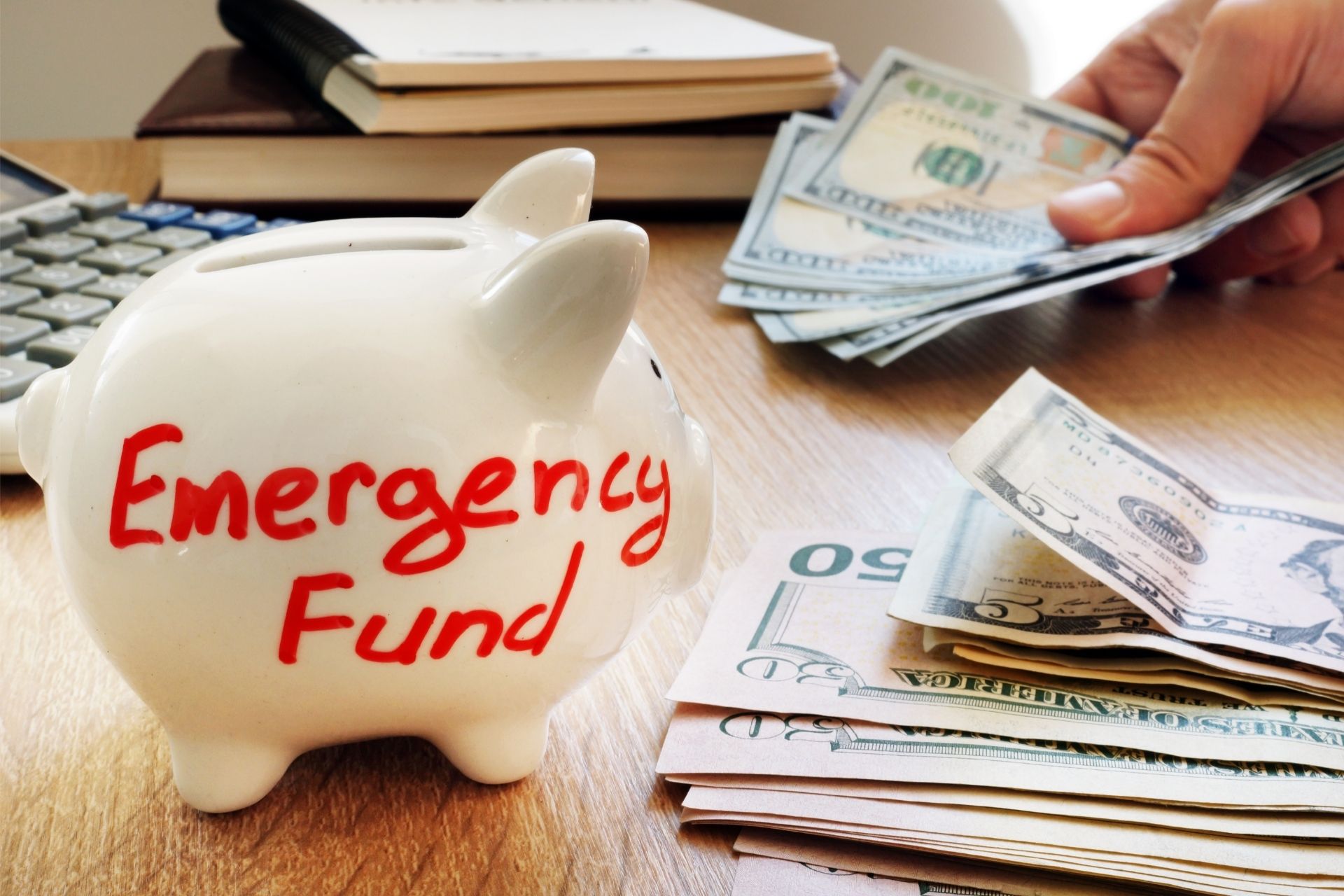
If you are committed to building an emergency fund, you must only use the fund during a severe emergency. Your fund can’t grow if you constantly use it for other purposes rather than the intended purpose – an emergency.
Interestingly, so many things could prevent you from preserving your emergency fund. You might be enticed by a brand new smart TV, a vacation, the latest smartphone, clubbing, and any other thing that is not an emergency.
Imagine lavishing your emergency fund on any of these things, and then an actual emergency now arises. What would you do? You would probably call yourself a fool.
So to save yourself from that dilemma, you should discipline yourself and tame your spending habit. Remember that knowing how to build an emergency fund is an excellent privilege because you are well prepared for the unexpected, unlike some people who don’t save for emergencies.
Final Thoughts On Building An Emergency Fund
An emergency fund could save you from so much anxiety and emotional stress. Having known that you are financially prepped to handle any emergency situation, you won’t always be in a panic mode. You won’t constantly rack your brain concerning what to do when facing unexpected expenses.
Also, one of the key benefits of an emergency fund is the fact that you are safe from unnecessary debts. Your emergency fund can enable you to handle most situations without borrowing money.
Pin this for later!
